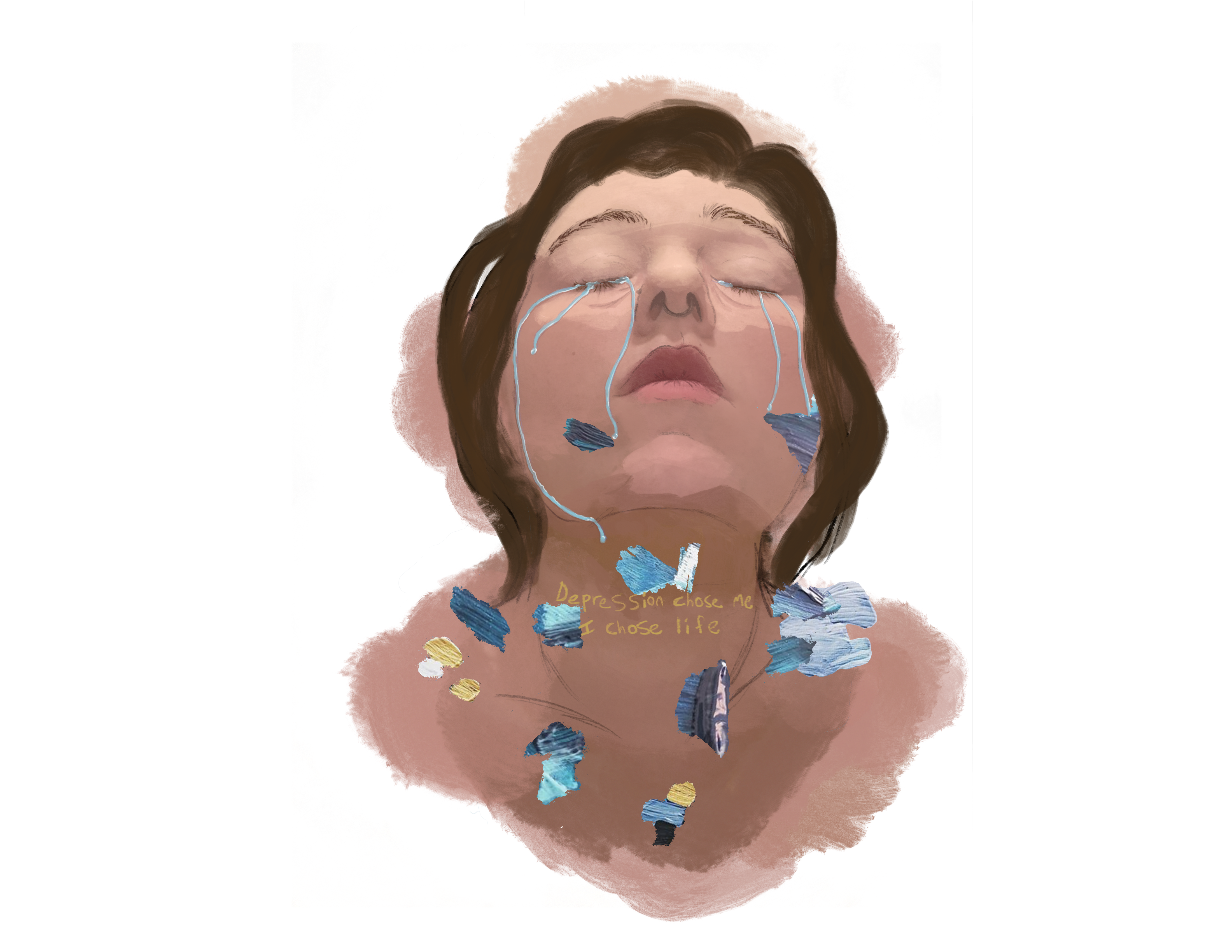By: Lizzy Boudah, Staff Writer
When a student first starts at university, they have an entire world unknown to them. They can expect physical changes such as exhaustion, but what some leave out are the emotional changes as well. Factors such as “…high debt. They also have fewer job prospects after graduation…” (Kerr, 2017). Such drastic changes to lifestyles can influence brain chemical activity to change. When a student becomes overwhelmed, they can feel a sort of dread or anxiety that comes in the moment… But what about those that feel lasting effects?
Students that feel that they might have something going on emotionally should seek guidance from the USM Health and Counseling services. They can help diagnose a temporary problem but students should always see their primary care physician if they’re looking for a proper diagnosis. Symptoms of depression include (but not limited to) a hopeless outlook, fatigue, trouble sleeping (insomnia), anxiety, and also loss of emotion and appetite. These are things to look out for in friends as well.
With the issue of COVID-19, mental health can and has declined in some people. Some students rely on in-person classes to learn, and the stresses of adjustment to online/Zoom can overwhelm them. Some people have a physical touch love language, and they could fall into a pit since CDC guidelines prohibit the frequent act of touch. Some have social lives that fuel their happiness and since guidelines state that we should maintain distance, it can impact the social butterflies pretty hard. All of these scenarios can tie into what may cause the later development of depression.
When someone has depression it can carry into their work and possibly impact their grades. Classes they used to find interesting may now be extremely dull, perhaps doing the bare minimum just to get through it. Sometimes they become so fatigued that they stop showing up to class, they lose credit, and the cycle repeats. If this is the case it is important to understand what your brain is going through in terms of chemical imbalances.
It is never as simple as a lack of serotonin or dopamine. There is much more that goes on to get to that point. Harvard Health explains “…genetic vulnerability, stressful life events, medications, and medical problems…interact to bring on depression”. The two chemicals most known, as mentioned above, are not the only chemicals involved with depression. There are so many others that can correlate to mental illness. This is why two people with the same symptoms can have drastic differences in reaction to medication (Harvard Health). It can be hard to find the right medication should that be the route people take.
Sometimes, however, depression in college students lead to other problems different from those academically. Students with untreated mental illness are more likely to attach themselves to a drug, be it alcohol, marijuana, or something worse. Healthline studies also show that “In the United States, suicide is the second leading cause of death among people aged 15–34 years. Among young adults aged 18–25 years, 8.3 percent have had serious thoughts of suicide (Kerr). It is so important to check in on your friends and their mental health as well as your own. If you identify symptoms, talk to them and show support. Ask how you can help them get better. Encourage them or yourself to seek help. Learning and trying various coping mechanisms can greatly aid in the process of dealing with depression. Some mechanisms can be creative such as painting, writing, or music. Some can be physical (which is recommended by Liza Little in Health and Counseling), such as working out, taking a leisurely stroll to get your mind off things, going for a hike, or yoga. Keeping your body in good physical health will absolutely keep the mental health in check as well. Exercise releases dopamine, which is one of the known “happy chemicals”. There are many more than those listed here but you can use these suggestions as inspiration. Finding something to distract yourself from depressing thoughts can make a real difference in mood and stimulate your brain at the same time.
If there is someone you know that is suffering in silence, alert a trusted adult. It could save their life, or your own. Speak to an RA with any questions about what is on campus, make an appointment with health services, and try your best. As long as you seek recovery you will not be stopped.
Health Services can be reached with the following information:
- Gorham Health and Counseling (Upton): 207-780-5411
- Portland Counseling: 207-780-4050
- Disability Services Center: 207-780-4706
Sources:
https://www.health.harvard.edu/mind-and-mood/what-causes-depression

